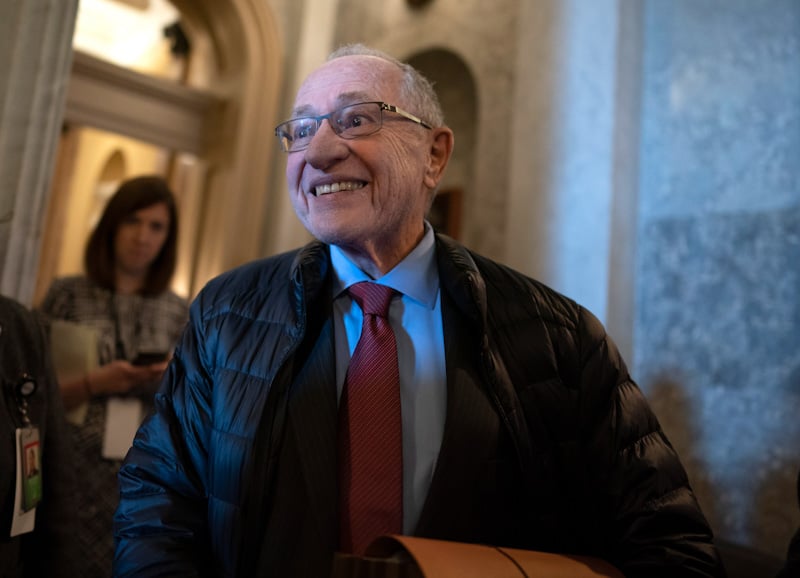Alan Dershowitz can't pursue defamation suit against CNN, despite its 'foolishness' and 'apathy,' judge says

Attorney Alan Dershowitz arrives for the first impeachment trial of then-President Donald Trump at the U.S. Capitol in Washington, D.C., in January 2020. Photo by J. Scott Applewhite/The Associated Press.
Former Harvard Law School professor Alan Dershowitz can’t pursue his lawsuit contending that CNN defamed him by mischaracterizing his remarks during the first impeachment trial of then-President Donald Trump, a federal judge in Fort Lauderdale, Florida, has ruled.
U.S. District Judge Raag Singhal of the Southern District of Florida, an appointee of Trump, granted CNN’s motion for summary judgment in an April 4 opinion.
Dershowitz, a public figure, failed to produce evidence that CNN’s reporting met the “actual malice” standard required for liability under the 1964 U.S. Supreme Court decision’s in New York Times Co. v. Sullivan, Singhal concluded.
Singhal nonetheless criticized New York Times Co. v. Sullivan as a good example why justices “should not be in the business of policy writing.” And while actual malice wasn’t established, the facts did show “foolishness, apathy and an inability to string together a series of common legal principles” on CNN’s part, Singhal said.
At issue were Dershowitz’s remarks during the January 2020 impeachment trial accusing Trump of withholding military funds for Ukraine to coerce that country’s president to investigate now-President Joe Biden and his son Hunter Biden.
Dershowitz claimed that a shortened clip and CNN news commentators falsely suggested that he thought that a president could do anything—including illegal acts—as long as a president thinks that it is in the public interest.
Dershowitz had actually argued that a president can’t be impeached simply because he takes action based on a desire to be reelected, if a president thinks their reelection is in the public interest. But Dershowitz had also said a president can be impeached if they did something illegal, regardless of their motive.
Dershowitz complained that CNN should not have taken out this sentence in edited clips: “The only thing that would make a quid pro quo unlawful is if the quo were some way illegal.”
He also criticized commentary, including this statement by Joe Lockhart, a CNN political analyst and a former White House press secretary: “Having worked on about a dozen campaigns, there is always the sense that, boy, if we win, it’s better for the country. But that doesn’t give you license to commit crimes or to do things that are unethical. So it was absurd. What I thought when I was watching it was this is un-American. This is what you hear from Stalin. This is what you hear from Mussolini, what you hear from authoritarians, from Hitler, from all the authoritarian people who rationalized, in some cases genocide, based what was in the public interest.”
Singhal said there is no proof that CNN commentators or producers entertained serious doubts about the veracity of the network’s reports.
“Rather, CNN has produced undisputed evidence that each of the challenged publications were individually edited and produced; there was no scheme to ‘falsely paint Dershowitz as a constitutional scholar and intellectual who had lost his mind.’”
“As CNN aptly argued during the hearing on this case,” Singhal said, “there is no requirement under the First Amendment for a reporter to talk about everything Dershowitz has ever said about impeachment or even all the various ways one can be impeached.”
Dershowitz didn’t immediately reply to a request for comment sent to his Harvard University email address or a message left with a person who answered at a number listed by the Massachusetts Board of Bar Overseers.
Hat tip to Law360, which covered the decision.
See also:
ABAJournal.com: “Afternoon Briefs: Judge rejects $2B Roundup settlement; Dershowitz pursues defamation suits”



